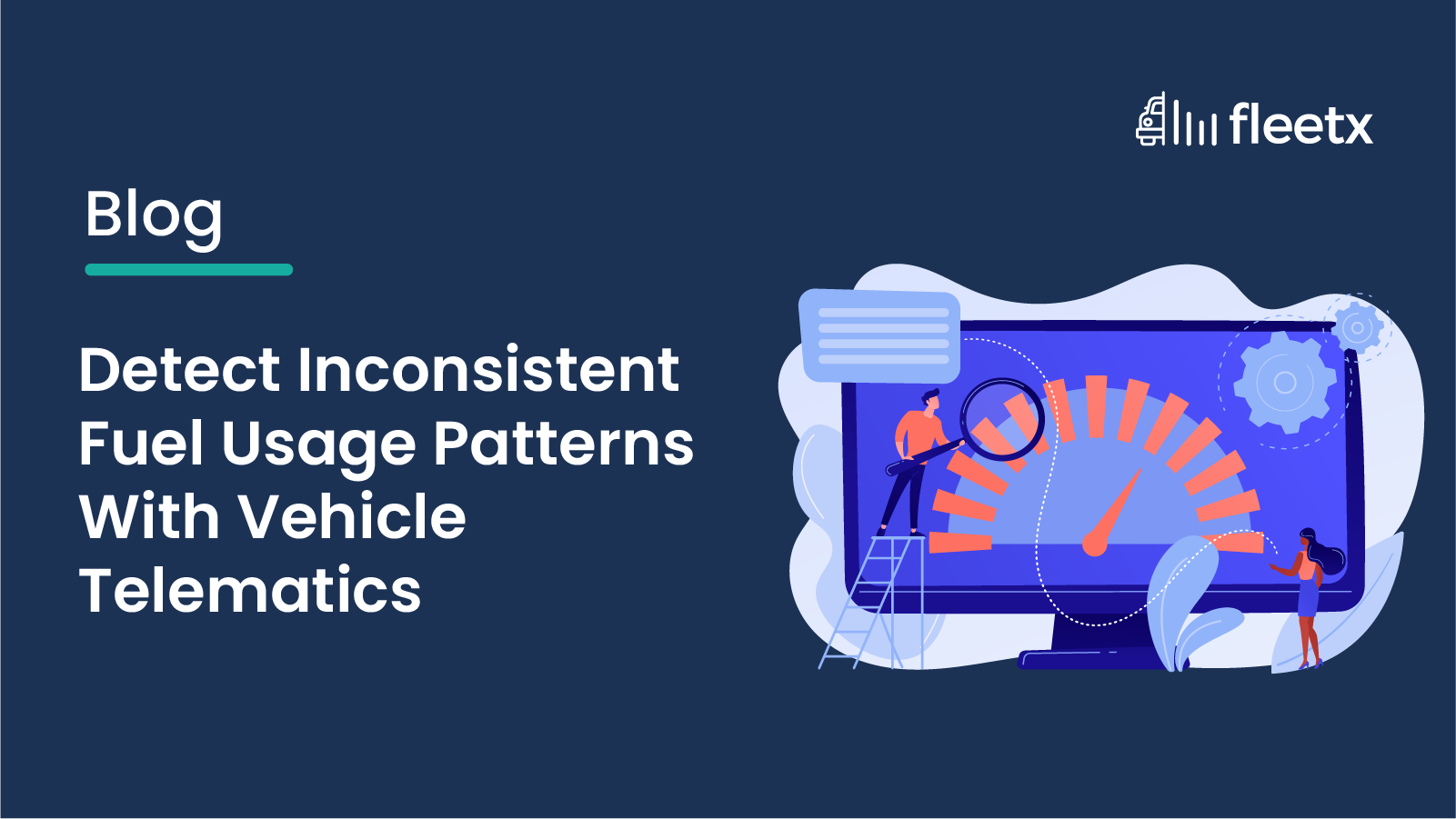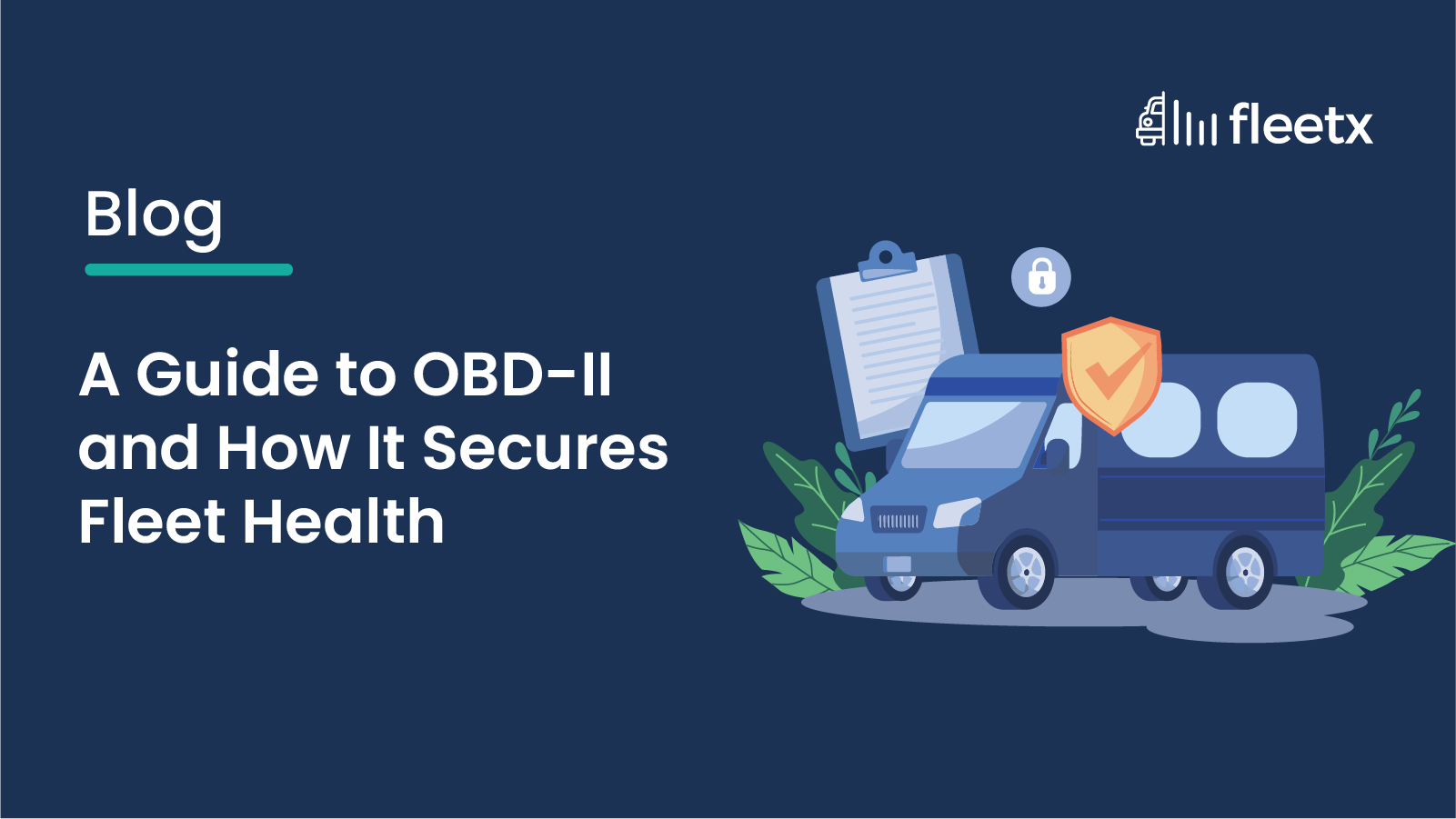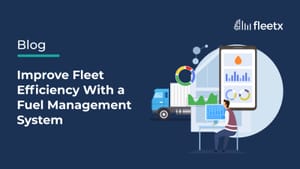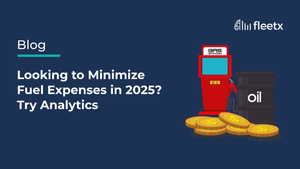
India’s trucking fuel costs account for 55% of the total operating expenses. Fleet operators have to keep their businesses afloat in the fluctuating economic conditions where supply chain disruptions are a common occurrence. To that effect, software solutions have become a cost-effective option.
Now, fuel economy refers to how efficiently a vehicle utilizes fuel, typically expressed in miles per gallon (mpg) or liters per 100 kilometers (l/100 km). An elevated fuel economy signifies the vehicle’s superior ability to cover longer distances with a specified quantity of fuel intake.
Primary Factors Affecting Vehicle Fuel Consumption
Several significant factors impact a vehicle’s fuel intake, including –
Vehicle Maintenance: Well-maintained vehicles operate more efficiently with higher fuel efficiency. Technology solutions auto-regulate maintenance schedules and activities, ensuring the vehicle keeps functioning in perfect condition with a longer lifespan.
Driving Behavior: Utilizing the latest technology advancements, fleet managers can monitor the in-cabin behavior of the drivers and provide feedback or incentivize them based on their performance, fostering fuel awareness in the operations.
Vehicle Aerodynamics: Tech solutions can identify and facilitate alterations in the vehicle design that reduce drag and lower fuel consumption.
Route Topography: The driving conditions, such as traffic situations and the landscape, impact fuel consumption. Technology implementation doesn’t control all the conditions, but it helps navigate the situations effectively.
Reliable Measures of Monitoring Fuel Consumption
An effective fuel management strategy depends primarily on a reliable mechanism for fuel consumption measurement, supported by –
Fuel Card Integration: Transport managers track and analyze fuel usage and identify potential issues, such as unauthorized purchases, to optimize fuel efficiency.
Direct Fuel Flow Measurement: Fuel flow meters are devices that measure fuel flow directly in the fuel lines, even at low consumption rates and brief intervals.
Fuel Level Sensors: These sensors register the fuel tank’s level to provide refill data, drainages, and overall fuel intake.
Telematics & GPS Data: Software solutions are integrated with vehicles to track location, speed, and other engine parameters to provide real-time vehicle monitoring.
Other Methods: Volume method, scale method, flow method, CAN bus data, are some additional means of measuring fuel intake.
Role of Fleet Telematics in Improving Fuel Efficiency
Fuel efficiency is one of the key parameters in ensuring a fleet’s cost-effectiveness, and vehicle telematics plays a crucial role in –
Upgrading Vehicle Aerodynamics
Fuel consumption is dependent on the vehicle machinery data collected by telematics. Examining speed and fuel usage specifics, fleet managers can analyze how aerodynamics impact the vehicle’s performance. Such data-driven analysis facilitates the modification of the components accordingly, thus correcting the vehicle's performance in the long run.
Driver Behavior Coaching
GPS-based vehicle tracking can monitor unreliable driving patterns – such as harsh acceleration, heavy braking, and speeding – that are known to increase fuel consumption. Telematics data can be utilized to identify such fuel-inefficient trends to implement targeted coaching, thus improving the overall fleet’s safety.
Reducing Vehicle Idling
Idling increases fuel consumption, increasing the operational costs significantly. Data transmitted from telematics systems alerts fleet managers of vehicle idling beyond permissible limits. With the presence of adequate data on turning off engines during loading and unloading or other waiting periods, fuel waste can be controlled significantly.
Route Optimization
Analyzing historical traffic trends and distances covered enables fleet managers to avoid congestion, reduce route distances, and limit unnecessary stoppages – factors that enable fuel savings. GPS navigation provides real-time traffic updates to reroute drivers dynamically, ensuring the most efficient delivery path every time.
Elevating Vehicle Maintenance
Telematics data plays a crucial role in maintenance management by scheduling automated maintenance alerts and tracking the vehicle’s health. These reminders range from a routine oil change to notifying about potential issues through diagnostic trouble codes (DTCs). Such prompt actions in terms of addressing maintenance needs optimize fleet fuel performance.
Reducing Fuel Theft
Telematics can be used to flag incidents of fuel theft by automatically alerting about unusual fuel level drops - faster than estimated. The parameters measure the change in predetermined levels over a specified time, often indicative of fuel thefts, which come into use during theft investigations.
Benefits of a Fuel Telematics System
Cost efficiency is a crucial parameter for measuring business success in the long term. An IoT-driven fuel management system provides several benefits, such as:
Fuel Cost Optimization
During interstate operations, analyzing historical route traffic data and dynamic fuel pricing data enables transporters to determine the optimal refueling options based on price trends and consumption patterns.
Improved Operational Productivity
AI-powered fuel management systems analyze the traffic conditions in real time to suggest the most efficient routing and rerouting options. Fleet operators can reduce fuel expenses by minimizing unnecessary detours and idle time while ensuring timely deliveries, lower wear and tear, and improved overall productivity.
Lower Fuel Wastage
Advanced fuel management systems detect maintenance needs before they turn into expensive escalations. IoT devices and sensors analyze engine health and fuel consumption patterns to detect potential issues such as leaks, tire pressure, or other mechanical errors, saving costs in the long run.
Environmental Compliance
CO2 emission reporting can be automated, ensuring compliant reporting and seamless tax processing. IoT and automation make carbon footprint tracking easier, with ESG compliance tools to help businesses align with global sustainability goals and corporate responsibility commitments.
Key Features of the Fleetx Fuel Management System
The unified platform from Fleetx combines AI, IoT, and advanced analytics to streamline logistics collaboration and provide end-to-end operational visibility. The fuel management system from Fleetx has been developed after a thorough assessment of several on-ground transportation problems – lack of fuel level visibility, inability to reconstruct fuel theft incidents, lack of vehicle performance visibility, unavailability of fuel tank events, manual reports on fuel data, and absence of construction machinery working analytics.
Comprehensive Fuel Data
Multiple fuel analytic data points - vehicle mileage, fuel wastage in idling, consumption per hour, and distance between fills - are mapped accurately to identify trends and patterns.
Real-Time Fuel Level Monitoring
Users can access real-time fuel levels and engine status on the unified platform, with historical reports available for analysis and recording.
Fuel Fill/Theft Alerts
The Fleetx unified platform generates event alarms and location data for fuel fills and thefts, which facilitates fuel event reconstruction.
Exclusive Construction Machinery Reports
The platform offers segregated reports for fuel consumption during vehicle movement and other relevant construction work data.
Nurture Fleet Sustainability With Better Fuel Productivity
Telematics is not only a technological tool but also strategic in navigating the complex fuel management landscape. The multifaceted approach balances the complexities involved in engine mechanics by promoting eco-friendly driving habits with advanced telematics for fuel monitoring.
The impact of telematics on businesses stretches beyond the bottom line - it contributes to reducing environmental footprints by incorporating greener practices that enhance business sustainability.





